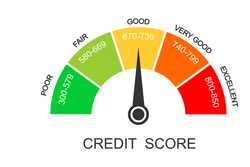- Paid-off debts
- One monthly payment
- Lower interest rate
- Faster payoff
- Pay off past-due accounts
- Improve your credit score
Pros & Cons of Debt Consolidation

Our evaluations and opinions are not influenced by our advertising relationships, but we may earn a commission from our partners’ links. This content is created by TIME Stamped, under TIME’s direction and produced in accordance with TIME’s editorial guidelines and overseen by TIME’s editorial staff. Learn more about it.
Debt consolidation is the process of acquiring a single new loan to pay off multiple debts. It can simplify your finances and relieve your financial burden. However, there are some instances in which it’s not always the right move. Let’s examine the pros and cons.
“[One] potential pro to debt consolidation loans is that your previous debts are reported as ‘paid in full’ in your credit history, protecting your credit score and reducing your monthly payment to a more manageable level,” says Rod Griffin, senior director of public education and advocacy for Experian. “That can help you manage your bills more effectively, stay in control of your debt, and protect your creditworthiness.”
When you consolidate all your debts into a new loan, you’ll make one payment on the new loan. Everything else will be paid off. This will simplify your financial situation, making it easier to manage and reducing your stress.
If you qualify, debt consolidation loans may come with a lower interest rate. A balance transfer credit card may have a 0% introductory APR offer, a personal loan could charge 15%, and a home equity loan could charge 7%, all of which are much lower than a 24.99% APR on a credit card.
If you’re paying the minimum due on a credit card each month, it will take many years to pay off. A fixed loan with installment payments can help retire the debt faster. The combination of a lower rate and shorter term could save you a considerable amount of money.
Consolidation can be used to pay off past-due accounts, not just those in good standing. Paying these off not only feels good; it will stop collection agencies from hounding you and help your credit score.
When you get a handle on your different debts, your credit score may improve. For example, when you take out a personal or home equity loan to pay off credit card debt, your credit utilization ratio will decrease, which can improve your credit score by moving your debt to a different credit type.
Of course, this assumes that you keep the credit accounts open. Closing credit accounts decreases the amount of credit you have available to you and can hurt your credit score. Still, if continued access to that credit line is problematic, closing it may be the right move.
Although debt consolidation can be a great way to streamline your finances, there are some instances in which it isn’t the right solution. Consider all the negative aspects, which include:
“The primary con of a debt consolidation loan is that it typically extends the payoff period, which means it will likely cost you more to pay off by the end of the loan term,” said Griffin. “That trade-off may be worthwhile if you are saving money by building stronger credit and reducing or eliminating other debt.”
With a debt consolidation loan you’ll be in pay-off mode, which could mean higher debt payments. This can happen when you go from making the minimum payment on a credit card to making installment payments geared toward paying off the principal amount.
When you apply for a debt consolidation loan, it seems like the best terms are reserved for people who don’t need one. If your debt is affecting your credit score, you may not qualify for the best interest rates and loan terms.
New loans may mean new fees. Personal loans often require an origination fee, and home equity loans may come with closing costs.
A home equity loan or home equity line of credit (HELOC) uses your home as collateral. This is why you get a lower interest rate and competitive terms compared to other types of loans. However, your lender can start foreclosure proceedings against you if you fail to make payments.
You need sufficient income and credit to qualify for the loan. If your credit utilization ratio is too high from all the debt, you may not qualify for a debt consolidation loan.
What are the conditions under which debt consolidation could be the right choice? They include:
Debt consolidation is dependent on qualifying for the loan. If your credit is in trouble, that’s going to be hard to do. You may also not qualify for a loan big enough to pay off your debts.
If you have a lot of credit card debt and are only making the minimum payment on each card, you will find it very difficult to pay off your total debt. Interest rates on loans are almost always less than on a credit card. If you can consolidate your debt into one fixed monthly payment at a lower annual percentage rate (APR), you could be in better shape to retire it. Accredited Debt Relief and Simple Debt Solutions are two companies that can help you test out what a new debt consolidation loan might cost per month.
Getting into debt takes away your ability to save for the future and build your wealth. If you haven’t addressed the cause of your debt issues, you’ll continue racking up debt. It’s advisable to fix these issues first; otherwise, your debt consolidation may just extend your debt further.
Debt consolidation only works if you can afford the new payment. When you switch from making the minimum monthly payment on a credit card to one on an installment loan with a payoff as its goal, you’ll probably pay more each month. Before you elect this option, run the numbers through a loan calculator to see if you can afford it.
As Griffin put it, “Debt consolidation involves borrowing money—in the form of a debt consolidation loan—to pay off current debts and reducing the debt payments to a single scheduled payment, usually at a lower interest rate, to make managing and paying off the debt easier and more affordable.” For example, a single personal loan with a 9.99% interest rate might work to pay off multiple credit card debts that have 24% interest rates.
Two options besides consolidation are debt settlement and debt management. Griffin discussed the difference between the first two.
“Debt settlement is when a consumer pays a company, such as a ‘debt relief’ company, to negotiate with their creditors to pay off the debt for less than they owe,” he said. “[Though] that debt settlement is often marketed as ‘debt consolidation,’ what [it]really means is the debt settlement firm consolidates all of your payments into a single payment to that firm. It then distributes payments to the creditors it has negotiated settlement with, after taking out its fee first.” National Debt Relief is one debt settlement company that offers these services.
Debt-settlement companies can charge steep fees, it pays to be cautious and carefully research your options. What’s more, debt settlement is reported negatively on your credit report.
“Consumers need to be vigilant about which option is being presented and should consider avoiding debt settlement when possible,” continued Griffin. “Instead, they should look into alternatives to help them manage their debt and improve their financial health.”
Debt management is one of those alternatives. It involves working one-on-one with a debt counselor to determine what course of action would be best for your finances. Often, you enter into a three- to five-year plan with a single monthly payment to pay off your debts.
A debt management plan may involve closing some credit accounts to make sure you’re not taking on more debt. You also may pay fees for the service. To find a government-approved debt management service, you can search a list on the Department of Justice website.
There are three main financing tools for consolidating debt: balance transfer credit cards, personal loans, and home equity loans or HELOCs.
Credit card balance transfers are an underrated way of consolidating debt. Some people may be able to get a 0% introductory APR to pay off their debts. The trick is qualifying for a high enough credit limit to cover all you owe—and managing to pay off the debt before the 0% period expires.
A debt consolidation loan is a single personal loan that replaces your multiple debts and has a fixed monthly payment. It’s usually unsecured, which means you need to qualify based on your income and credit history. The interest rates on these loans vary widely. If you have a large amount of debt and a lower credit score, you might get a high one. Loans for people with bad credit can charge as much as 35.99% APR, though you’ll often get much lower rates from credit unions, such as PenFed.
One thing that makes these types of loans convenient is a prequalification tool, which can tell you almost instantly if you qualify. It also shows the amount for which you qualify and what terms you can select, usually without a hard credit check, meaning that your credit score will not be negatively affected. This makes it easier to decide whether a debt consolidation loan is right for you. Examples of companies that have a prequalification tool include Happy Money, Discover, and Upstart.
A home equity loan might be the right move if you have a large amount of equity and need to retire a large amount of debt. It will likely have a lower interest rate than your debt. The big caveat here is that if you’re unable to make payments, you could lose your home in a foreclosure.
A home equity loan also spreads your debt over a longer period of time. This means that—while you may have a lower interest rate and a more manageable monthly payment—you’ll also pay more in interest over the life of the loan. You also may need to pay closing costs on the loan, which can run into hundreds or even thousands of dollars..
Once you’ve decided which type of debt consolidation loan you want, you’ll need to find a lender. The process is easier than you think. You should explore your options and compare rates among banks, credit unions, and online lenders. Once you settle on a lender, here’s what to do.
Consolidating debt isn’t always the right solution. You may be paying more over a longer period of time and not have addressed the root problem.
Before making any decision, be sure to run the numbers. Compare the interest rates you can get with the ones you’re replacing. Take a look at loan terms, how long it will take you to pay off the debt, and how much more interest you’ll pay. Be certain that you can afford the new payment and that it will help you retire your debt under better and more affordable terms than your current ones.
Generally, no. This is because you take multiple debts—often credit cards with a high balance—and replace them with a single loan. The loan is usually a personal installment loan or a home equity loan or HELOC, which appear in different categories on your credit report. When the credit utilization ratio of your revolving credit category decreases, your score usually goes up.
Conversely, if you have debt written off or settled (as opposed to consolidated and paid off), it will reflect negatively on your credit report. And if you close credit accounts to consolidate, it can increase your credit utilization ratio because you have less credit available to you. This will likely lower your credit score.
It’s best to ask a professional about your individual situation. Consolidating your debts means that you’re still paying them, whereas settling debt means that the holder of your debt is forgiving a portion or all of your debt. Settled debt remains on your credit report for seven years. Debt settlement is also rife with companies that scam customers or charge large fees, so it can be a difficult road to traverse. A debt management plan is a third option to explore that may have less impact on your credit score.
Debt consolidation isn’t recorded as such on your credit report. Instead, your report will show what’s going on with the new credit accounts you used for the debt consolidation, as well as note the closing of old credit accounts you paid off, which should help your credit score.
The major risk of debt consolidation involves defaulting on your new loan, which is why it’s important to run the numbers first. If you are using your home equity to pay off your debts, the consequences could be especially drastic: You could lose your home in a foreclosure if you can’t make the payments on your home equity loan or HELOC.
The information presented here is created by TIME Stamped and overseen by TIME editorial staff. To learn more, see our About Us page.



